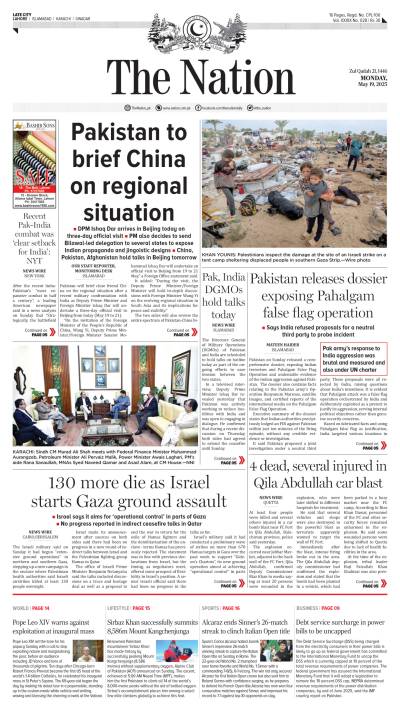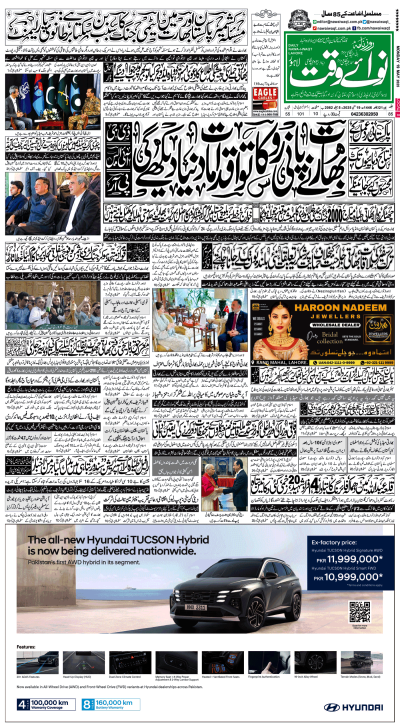LAHORE - There was an awkward moment for the government when the treasury lawmakers broke ranks and joined the opposition in criticizing its wheat policy during an Assembly debate on Wednesday. It was a rare display of dissent to see the treasury legislators voicing strong criticism of their own party’s agricultural policies particularly targeting the government’s approach to wheat procurement.
But perhaps such dissent was inevitable, given that more than 60 percent of Punjab Assembly lawmakers hail from the province’s influential landed gentry. The mounting frustration among lawmakers is hardly surprising, given that wheat prices have plunged to nearly half of what they were just two years ago. Opposition benches applauded government lawmakers with desk-thumping in appreciation as they expressed disagreement with the government’s wheat policy.
Agriculture Minister Ashiq Kirmani’s remarks in the House painted a picture of a government moving toward market liberalization while at the same time attempting to retain support for small farmers through targeted schemes. Taking part in the debate, a ruling party MPAAhsan Raza Khan stated that despite being a member of the ruling party he could not support the government’s wheat policy. He pointed out that although 1.4 million farmers applied for the ‘Kisan Card’, only 600,000 actually benefited from the scheme. “What happened to the remaining farmers?” he asked. He compared the struggles of small farmers with the extravagant lifestyles of the elite. “The elite spend Rs. 3,000 on a single pizza, while farmers are forced to sell wheat at just Rs. 2,200 per 40 kg. Where is the justice in that?” He urged the government not to shift the burden of IMF-driven reforms onto the agricultural community. Criticising the Kissan Package announced by the chief minister, he argued that a small farmer cannot store wheat for even an hour, yet the government expects them to hold it for four months. “The formula of offering storage space won’t work.” Ruling party lawmaker Amjad Ali Javed delivered a passionate critique of the government’s agricultural policy as he questioned the selective implementation of IMF directives. He demanded immediate measures to protect farmers from economic ruin.
In an impassioned speech, Zulfiqar Ali Shah of the PML-N criticized what he described as a “bizarre mockery” of a matter as serious as national food security. Urging the government to treat the issue with the gravity it deserves, he emphasized that food security should be a top priority for any nation. Appealing to the government’s conscience, he said, “For God’s sake, understand — the farmer cannot store grain for profit. Governments are the ones who store it, and only so it can be used in times of need.” Amid mounting criticism from within the ruling party, government lawmaker Mahar Kashif came to the defense of the government’s wheat procurement policy, urging fellow lawmakers to avoid uninformed criticism. Outlining the government’s solution, he noted, “This time, the government has planned to pay 70 percent of the wheat price upfront to small farmers and is also offering free storage facilities for their crops.” In a scathing address in the Assembly, opposition lawmaker Waqas Maan lambasted the Punjab government for its inaction on wheat procurement, warning that the current free trade policy would drive farmers into deeper economic despair and eventually lead to mass migration from rural to urban areas. In a detailed address to the Assembly, Punjab’s Agriculture Minister Ashiq Kirmani defended the government’s wheat policy and emphasized the initiatives taken to support small farmers, particularly through the Kisan Card scheme. The minister told the House that the Kisan Card was designed to support small farmers as they had collectively purchased seeds worth Rs. 52 billion. “This card also allows them to buy diesel and agricultural pesticides,”he added.
Kirmani also addressed the ongoing debate about wheat pricing saying that under the current rules and regulations, the government does not set the price of wheat. “Wheat has been placed under a free market economy, and the borders have been opened to allow unrestricted transportation.”





